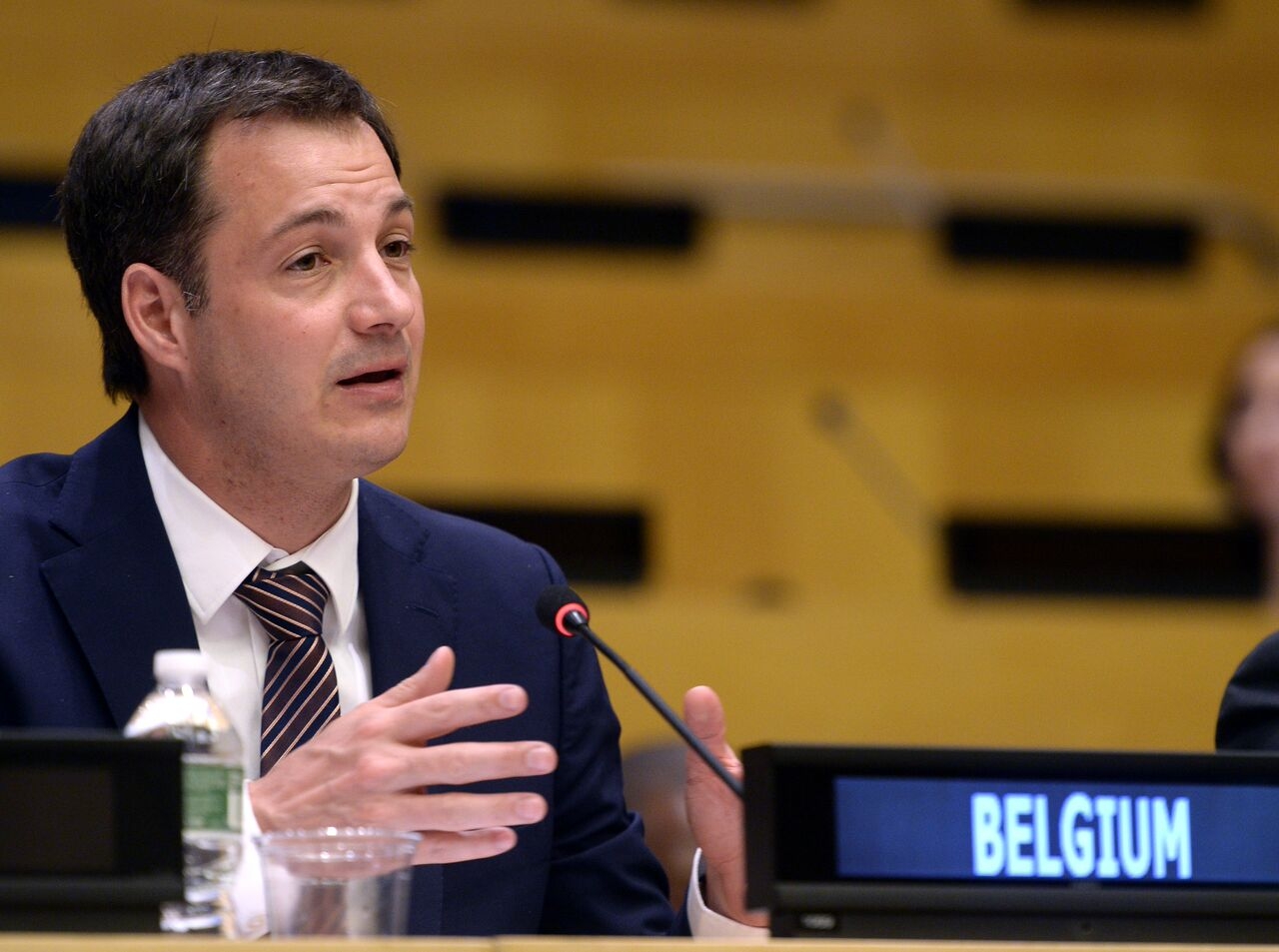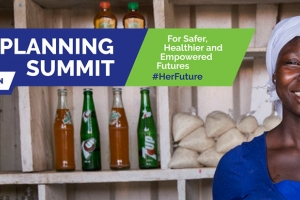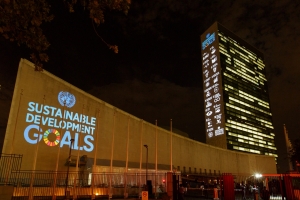Belgian statement - High-Level Political Forum on Sustainable Development (UN)

Today, Deputy Prime Minister and Minister for Development Cooperation Alexander De Croo delivered the Belgian statement during the United Nations High Level Political Forum on Sustainable Development (HLPF). This year's HLPF topic is Eradicating poverty and promoting prosperity in a changing world.
Ladies and Gentlemen,
The Secretary General’s report on the theme of this year’s high level segment contains a number of important messages and recommendations to advance successful policies for eradicating poverty in all its forms.
The consistency with the messages heard last week during the HLPFs in depth review of a number of SDGs is striking. It confirms the SDG movement is growing and is becoming more and more defining.
Let me start with two observations.
First observation. The potential of the SDGs to unite all stakeholders around clear objectiveshas been proven once again. They promote knowledge-sharing, mutual learning and enable an open dialogue.
Building bridges has been the SDGs philosophy from the start. And that is what we have been doing in Belgium: building bridges between the development sector, civil society, public authorities at all levels, academia and the private sector.
Last year, for instance, I launched the Belgian SDG Charter to unite the private sector, civil society and the public sector around the SDGs and international development. In the meantime, more than 100 companies and organizations have signed up to the SDG Charter, committing themselves to work together to bring the SDGs to life.
We also have to build bridges between generations. And that is why the enthusiasm of children and youth – our future generation - cannot be left unnoticed. It is heartening to see how strongly involved they are with the SDG agenda.
My second observation is we have to be realist: Yes, progress is being made, but important challenges remain.
The SDGs should be met for everyone, especially for the poorest and most vulnerable. In this regard, the latest report of the UN Secretary General should be a wake-up call to us all. The total number of persons living in extreme poverty remains unacceptably high, while LDCs and fragile countries are still largely left behind.
Eradicating poverty in all its forms and dimensions is indispensable for sustainable development. We need to urgently reverse this trend.
Belgium is doing its share to make this happen. We have engaged to allocate, by 2019, at leasthalf of our ODA to the least developed countries and fragile states, and we encourage other donors to follow suit.
In this respect, we also need to reflect on the use of ODA. It has to be better used to leverage innovative sources of financing, including private investments. ODA should be more focused on quality rather than just on quantity.
We also have to acknowledge that the potential of half of the world’s population still remains largely untapped. Empowering women and girls remains an urgent cross-cutting priority, including through guaranteeing their universal access to sexual and reproductive health and rights.
Belgium is supporting this effort through the She Decides Initiative that we've launched together with the Netherlands, Denmark and Sweden. At the Brussels conference that I hosted earlier this year, we managed to raise 181 million euro to uplift millions of girls and women fighting their rights around the world.
* * *
The road to 2030 is long and we need to more. In Belgium, our first Voluntary National Review has allowed us to identify both good practices and pressing challenges.
Belgium is one of the strongest equalizing countries in the world. We are strong in social protection. In recycling. In gender mainstreaming.
Of course, we are proud that the SDG Index presented last week by the Bertelsmann Foundationand the Sustainable Development Solutions Network has ranked Belgium on a 12th place worldwide. This is a good result indeed, although still a lot needs to be done.
We have, for instance, to step up our efforts in the fields of environmental protection and energy transition, enhance attention for lifelong learning and increase our fight against obesity.
Our First Voluntary National Review offers a good baseline to measure the necessary progress in the years to come.
* * *
Ladies and Gentlemen,
Let me conclude with three lessons learned during this year’s HLPF. Three lessons to strengthen our collective effort and bring the SDGs into practice.
First, the need to build more efficient and more equitable tax collection systems worldwide. Belgium supports this through our funding of the IMF Revenue Mobilization Trust Fund.
In the very same philosophy, we are currently making work of lifting the tax exemption regimesthat are still being granted to donors by their partner countries. Such a waiver is already fully operational in our new bilateral cooperation agreement with Guinee. May I appeal to other donors to follow this Belgian example?
Second, we need more detailed reporting and we have to strengthen our data capacity through technology and innovation.
While our own Belgian statisticians are upping their game in order to translate the global and European SDG indicators into national and subnational ones, we also assist other governments through the Global Partnership on Sustainable Development Data.
In October, the first Global Science Technology and Innovation Conference will be organized in Brussels, a collaboration between innovation institutes from India, Kenya, Thailand and Flanders, Belgium, specifically seeking innovative SDG solutions.
We really have to put the Fourth Industrial Revolution at work for the SDGs. That is why Belgium’s international development policy has pioneered the concept of Digital for Development (D4D) that has now also become a key component of the EU’s international development strategy.
And, finally, my third and last lesson. We need to reform the UN system and make it fit for supporting the Agenda 2030.
I am confident if we do this, if we keep building bridges, we will indeed fulfil our pledge to leave no one behind.
Belgium is fully committed to make this happen.
I thank you.


